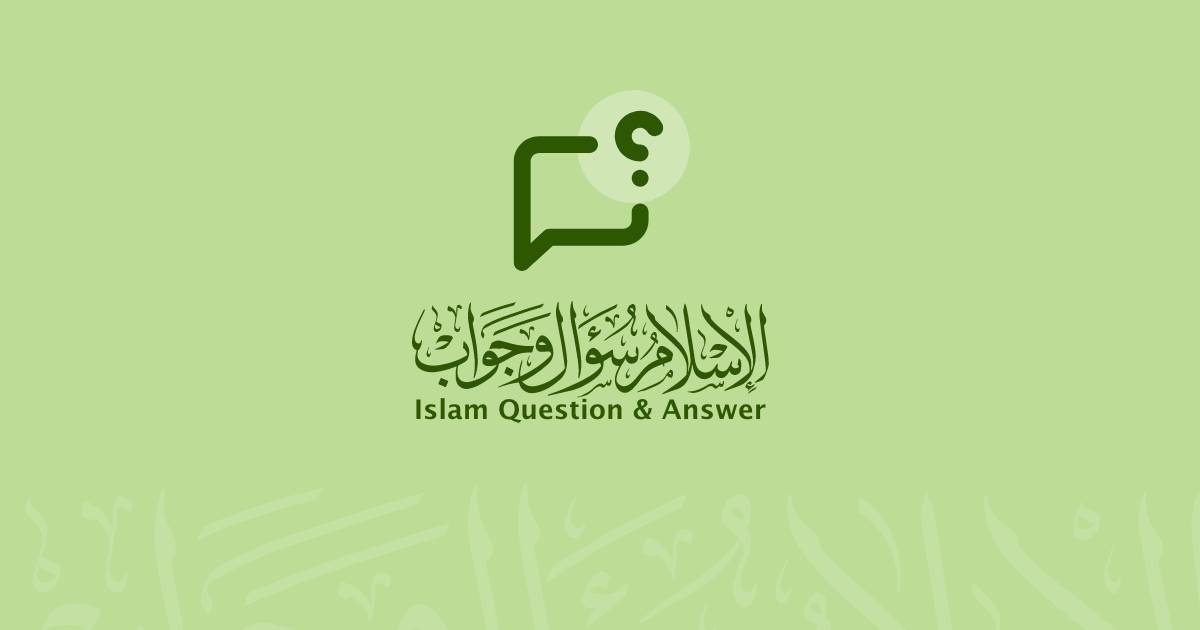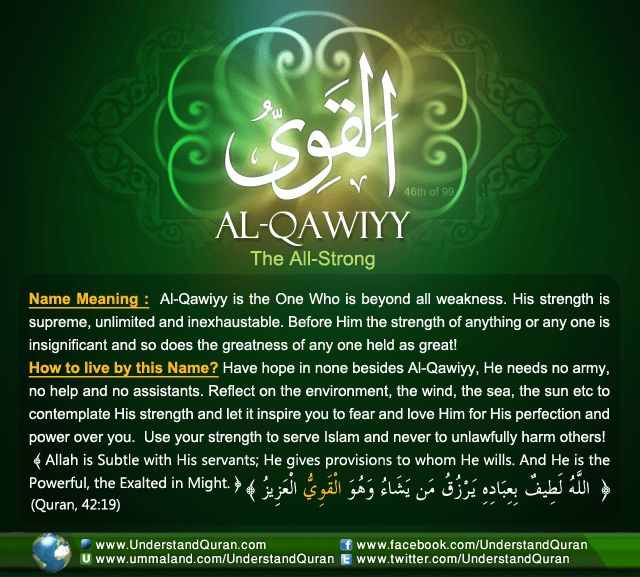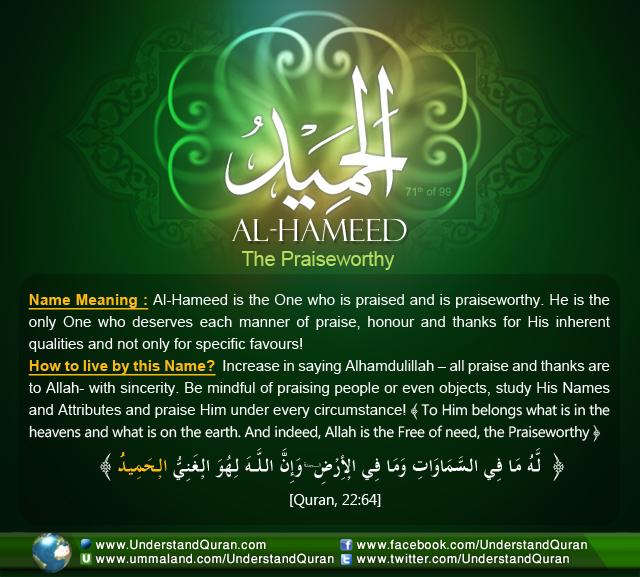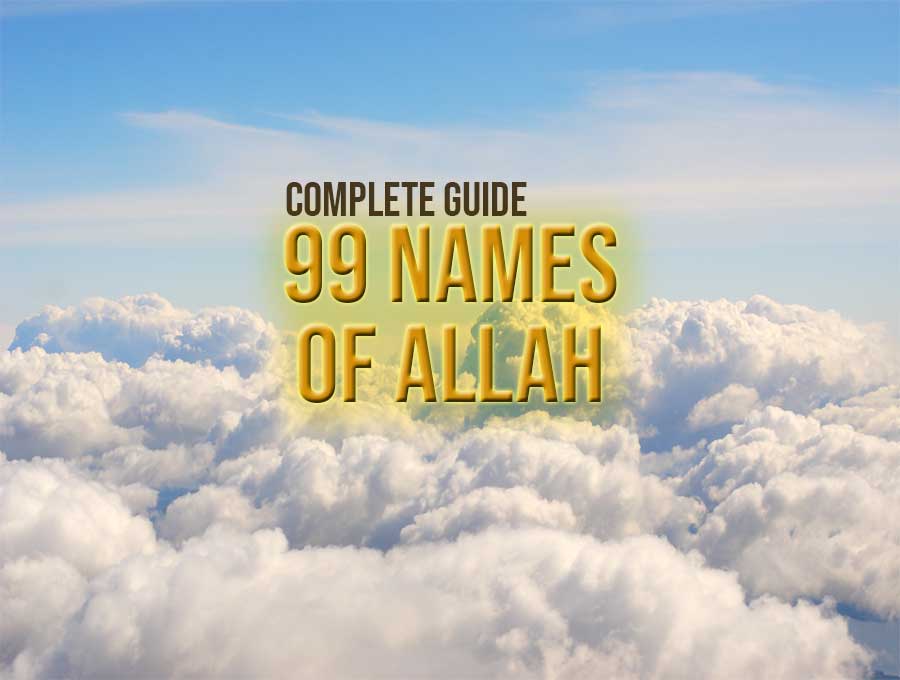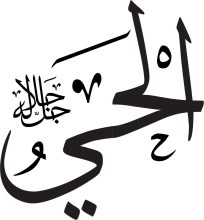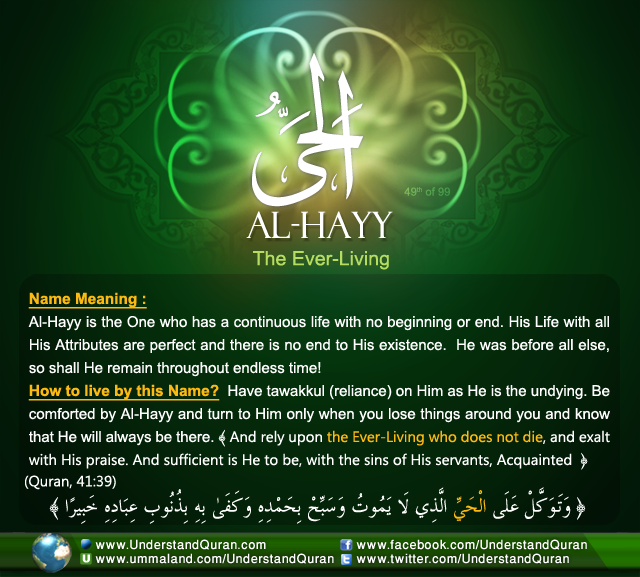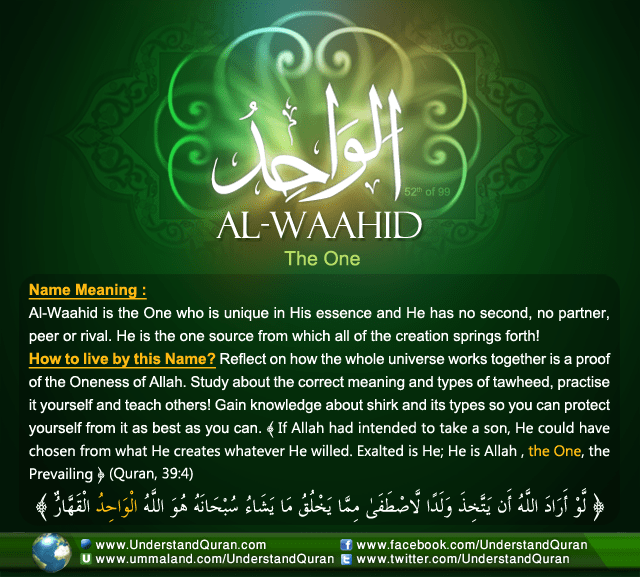DesertRose
Superstar
- Joined
- May 20, 2017
- Messages
- 7,803
The Resurrector, The Raiser (from death), The One who resurrects His slaves after death for reward and/or punishment.
22:7 And verily the Hour will come: there can be no doubt about it, or about (the fact) that Allah will raise up all who are in the graves.
Do you feel closer to Allah subhanahu wa ta`ala (exalted is He)? Do you feel more able to turn to Him? Do you feel like you can see the manifestations of Allah’s attributes in your day-to-day? This series is not meant merely as an academic study on the Names of Allah; its aim is to know enough about each Name to be able to connect to Him, to be able to effect change; and to understand the purpose behind certain things.
I hope that we can all return to those Names again and reflect on them. And please, feel free to share how you feel you connected.
Previously, we talked about Allah (swt) being the Giver of Life and the Life-Taker, how these Names are manifested, and what we can learn from them. Absolute certainty in those Names brings us to this Name of Allah: Al-Bā`ith: the Resurrector, the Raiser of the Dead.
Resurrection and Accountability
Allah (swt) says in the Qur’an:

“And [that they may know] that the Hour is coming – no doubt about it – and that Allah will resurrect [yab`ath] those in the graves.” (Qur’an, 22:7)
Ba`th (from the root ب-ع-ث) literally means to awaken, to raise up or to send. So it would be said:
بعث الناقة أثارها، بعث فلاناً من نومه أيقظه، البعث بعث الجنود إلى الغزو
“Ba`th of a camel means to excite it/wake it, Ba`th of someone from his sleep means to wake him up, and ba`th of the armies means to send them forward to battle.”
For people who question whether we can really be raised up again, Allah (swt) asks in the Qur’an:
“Do they not see that Allah, who created the heavens and earth and did not fail in their creation, is able to give life to the dead? Yes. Indeed, He is over all things competent.” (Qur’an, 46:33)
Is it more difficult to create something from nothing, or to bring something already in existence back to life?
So what does this mean for us?
Two things: purpose and accountability.
It is easy to forget that we will be raised again, and we may wander aimlessly not knowing what to do with our lives. But knowing that we will be raised up should infuse new meaning into the things that we do. Allah (swt) tells us in the Qur’an:
“Then did you think that We created you uselessly and that to Us you would not be returned?” (Qur’an, 23:115)
So we can ask ourselves, what am I going to present to Allah (swt)? What is the thing—or things—that we will say to Allah (swt), “My Lord, I tried to do good, I did this, for you”? Let us take a lesson from the mother of Maryam `alayha as-salaam (peace be upon her) when she said to Allah (swt):
“My Lord, indeed I have pledged to You what is in my womb, consecrated [for Your service], so accept this from me. Indeed, You are the Hearing, the Knowing.” (Qur’an, 3:35)
But what if we do not know what to give for Allah?
Sheikh Ratib an-Nabulsi says that another meaning of ba`th is that Allah sends to or inspires His servants to do good. So when you are feeling the urge to do something good, act upon it; do not delay it. In our short series on “Seeing the World in a Different Way”, we gave tips on how to attach a sincere intention and meaning into the things that we do.
The second related point of feeling the effect of Allah (swt) being al-Bā`ith is that of accountability. There is a certain mantra going around of “this is who I am, accept it”. This might be a good attitude sometimes, for example, if you want people to accept your interests or certain qualities that you have. This shouldn’t be the attitude that we have with regards to blameworthy qualities, such as a bad temper. As Muslims, we must constantly be evolving for the better. This is what our beloved Prophet ﷺ (peace be upon him) taught his Companions. When they made a mistake, he taught them, and they pledged to change.
In the story in Surat al-Qalam, Allah (swt) tells us about the people of the garden who wanted to take all of the harvest for themselves and left nothing for the poor. So Allah (swt) caused the garden to burn down. The amazing thing is that they realized their mistake. They said:
‘They said, “Exalted is our Lord! Indeed, we were wrongdoers.”
Then they approached one another, blaming each other.
They said, “O woe to us; indeed we were transgressors. Perhaps our Lord will substitute for us [one] better than it. Indeed, we are toward our Lord desirous.”‘ (Qur’an, 68:28-32)
They realized their mistake, took responsibility and moved towards their Lord. They did not try to justify what they did; rather, they became better because they learned from their mistake, and never lost hope in Allah (swt).
Sending of a Messenger
Allah (swt) says in the Qur’an:
“And We certainly sent [ba`athnā] into every nation a messenger […]” (Qur’an, 16:36)
The beloved Prophet ﷺ was sent to us as a mercy and a teacher. And he was sent to all of us as the best example. Most importantly, he was sent from Allah (swt), the One who cares about us the most.
So when we speak of purpose, we need to look at the things that the Prophet ﷺ encouraged. He taught us that the seemingly small things matter, and the thing that matters most is your intention. He told us of the lofty station of the woman who used to clean the mosque, the high status of those who spent from their wealth in charity, the closeness to him of the person who supports an orphan, and the greatness of the deed of removing harmful things from people’s path. Being connected to the Prophet ﷺ and following his way no doubt connects us to al-Bā`ith.
How to Come to Life with this Name
Names of Allah (SWT) | Al-Ba'ith (Sayed Hussain Makke)
22:7 And verily the Hour will come: there can be no doubt about it, or about (the fact) that Allah will raise up all who are in the graves.
Do you feel closer to Allah subhanahu wa ta`ala (exalted is He)? Do you feel more able to turn to Him? Do you feel like you can see the manifestations of Allah’s attributes in your day-to-day? This series is not meant merely as an academic study on the Names of Allah; its aim is to know enough about each Name to be able to connect to Him, to be able to effect change; and to understand the purpose behind certain things.
I hope that we can all return to those Names again and reflect on them. And please, feel free to share how you feel you connected.
Previously, we talked about Allah (swt) being the Giver of Life and the Life-Taker, how these Names are manifested, and what we can learn from them. Absolute certainty in those Names brings us to this Name of Allah: Al-Bā`ith: the Resurrector, the Raiser of the Dead.
Resurrection and Accountability
Allah (swt) says in the Qur’an:

“And [that they may know] that the Hour is coming – no doubt about it – and that Allah will resurrect [yab`ath] those in the graves.” (Qur’an, 22:7)
Ba`th (from the root ب-ع-ث) literally means to awaken, to raise up or to send. So it would be said:
بعث الناقة أثارها، بعث فلاناً من نومه أيقظه، البعث بعث الجنود إلى الغزو
“Ba`th of a camel means to excite it/wake it, Ba`th of someone from his sleep means to wake him up, and ba`th of the armies means to send them forward to battle.”
For people who question whether we can really be raised up again, Allah (swt) asks in the Qur’an:
“Do they not see that Allah, who created the heavens and earth and did not fail in their creation, is able to give life to the dead? Yes. Indeed, He is over all things competent.” (Qur’an, 46:33)
Is it more difficult to create something from nothing, or to bring something already in existence back to life?
So what does this mean for us?
Two things: purpose and accountability.
It is easy to forget that we will be raised again, and we may wander aimlessly not knowing what to do with our lives. But knowing that we will be raised up should infuse new meaning into the things that we do. Allah (swt) tells us in the Qur’an:
“Then did you think that We created you uselessly and that to Us you would not be returned?” (Qur’an, 23:115)
So we can ask ourselves, what am I going to present to Allah (swt)? What is the thing—or things—that we will say to Allah (swt), “My Lord, I tried to do good, I did this, for you”? Let us take a lesson from the mother of Maryam `alayha as-salaam (peace be upon her) when she said to Allah (swt):
“My Lord, indeed I have pledged to You what is in my womb, consecrated [for Your service], so accept this from me. Indeed, You are the Hearing, the Knowing.” (Qur’an, 3:35)
But what if we do not know what to give for Allah?
Sheikh Ratib an-Nabulsi says that another meaning of ba`th is that Allah sends to or inspires His servants to do good. So when you are feeling the urge to do something good, act upon it; do not delay it. In our short series on “Seeing the World in a Different Way”, we gave tips on how to attach a sincere intention and meaning into the things that we do.
The second related point of feeling the effect of Allah (swt) being al-Bā`ith is that of accountability. There is a certain mantra going around of “this is who I am, accept it”. This might be a good attitude sometimes, for example, if you want people to accept your interests or certain qualities that you have. This shouldn’t be the attitude that we have with regards to blameworthy qualities, such as a bad temper. As Muslims, we must constantly be evolving for the better. This is what our beloved Prophet ﷺ (peace be upon him) taught his Companions. When they made a mistake, he taught them, and they pledged to change.
In the story in Surat al-Qalam, Allah (swt) tells us about the people of the garden who wanted to take all of the harvest for themselves and left nothing for the poor. So Allah (swt) caused the garden to burn down. The amazing thing is that they realized their mistake. They said:
‘They said, “Exalted is our Lord! Indeed, we were wrongdoers.”
Then they approached one another, blaming each other.
They said, “O woe to us; indeed we were transgressors. Perhaps our Lord will substitute for us [one] better than it. Indeed, we are toward our Lord desirous.”‘ (Qur’an, 68:28-32)
They realized their mistake, took responsibility and moved towards their Lord. They did not try to justify what they did; rather, they became better because they learned from their mistake, and never lost hope in Allah (swt).
Sending of a Messenger
Allah (swt) says in the Qur’an:
“And We certainly sent [ba`athnā] into every nation a messenger […]” (Qur’an, 16:36)
The beloved Prophet ﷺ was sent to us as a mercy and a teacher. And he was sent to all of us as the best example. Most importantly, he was sent from Allah (swt), the One who cares about us the most.
So when we speak of purpose, we need to look at the things that the Prophet ﷺ encouraged. He taught us that the seemingly small things matter, and the thing that matters most is your intention. He told us of the lofty station of the woman who used to clean the mosque, the high status of those who spent from their wealth in charity, the closeness to him of the person who supports an orphan, and the greatness of the deed of removing harmful things from people’s path. Being connected to the Prophet ﷺ and following his way no doubt connects us to al-Bā`ith.
How to Come to Life with this Name
- Have purpose: Remember where you are going, and that indeed you are going somewhere. Make every moment count. Allah (swt) tells us in the Qur’an: “O you who have believed, fear Allah. And let every soul look to what it has put forth for tomorrow – and fear Allah. Indeed, Allah is Acquainted with what you do.” (Qur’an, 59:18)
- Hold yourself to account: It is reported that Omar bin al-Khattab, the companion of the Prophet ﷺ, said: “Hold yourself to account before you are held to account, for that is better for your accounts. And weigh yourselves before you are weighed, and prepare yourselves for a day when ‘you will be exhibited [for judgement]; not hidden among you is anything concealed.'”
- Study the life of the Prophet ﷺ: If you find that you are running low on inspiration, study the life of the Prophet ﷺ. His life and character provide the blueprint for our own lives.
- Lift people up with knowledge: Al-Ghazāli counsels: “The truth of the resurrection refers to bringing the dead to life by creating them once more. Ignorance is the greatest death and knowledge the noblest life. God—may He be praised and exalted—mentioned knowledge and ignorance in His holy book, and called them life and death. Whoever lifts another out of ignorance to knowledge has already created him anew and revived him to a blessed life. And should a man have a way of conveying knowledge to people and calling them to the Most High that would be a kind of revivification, and such would be the level of prophets and the scholars who are their heirs.” (Al-Ghazāli, The Ninety-Nine Beautiful Names of God)
Names of Allah (SWT) | Al-Ba'ith (Sayed Hussain Makke)











